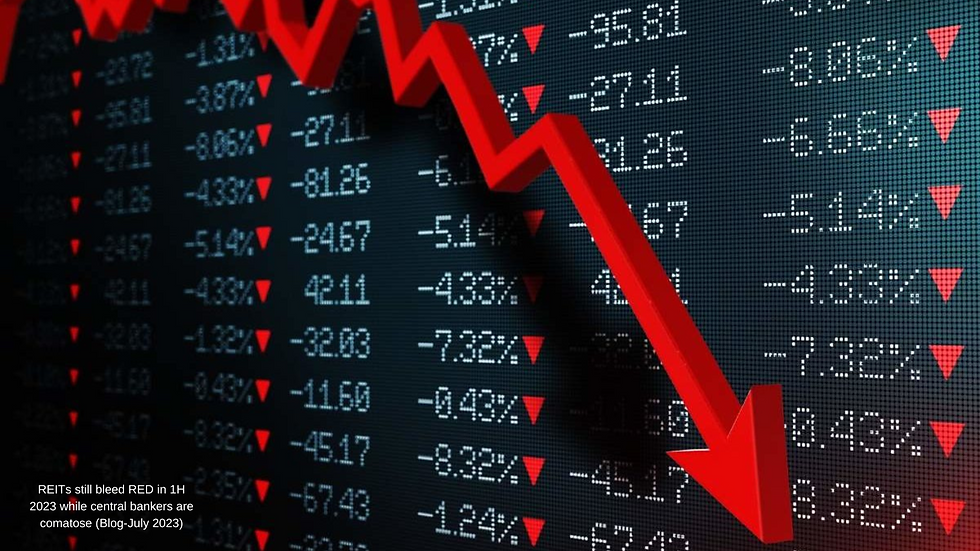HOW TO AVOID COGNITIVE BIAS IN INVESTING
- by Gabriel Yap

- Nov 19, 2017
- 3 min read
11/2016-
Two months that just passed marked the 15th Anniversary of World Trade Centre bombing on 11th September 2001. To many outsiders, the country-wide commemorations seem a tad overdone and bear little association or reflection.

To me, it was an introspection episode as the World Trade Centre used to be my meeting place with the hedge fund managers that I worked with while stationed in New York . We would meet at the huge Atrium on Fridays and walk to the nearby Bull & Bears pub for a cigar over glasses of Scotch to catch up on the week’s trading activities.
Post the Sep 11th bombing, it soon emerged that actually the CIA and FBI have had early indications of terrorists planning such attacks, but somehow, did not act upon them.
Subsequent findings showed clearly that the CIA and FBI were not unaware of plots to fly hijacked planes into buildings on American soil.
In the classic book "The March to Folly - From Tro to Vietnam" by Pulitzer-winning writer Barbara W. Tuchman, the author grapples with her boldest subject: the pervasive presence, through the ages, of failure, mismanagement, and delusion in government.
I had an enjoyable time devouring the book while enjoying the winter air in my Melbourne home (in contrast to the heat and humidity in Singapore) as the author drawed on a comprehensive array of examples, from Montezuma s senseless surrender of his empire in 1520 (so different from Empire of the Sun) to Japan’s attack on Pearl Harbor.
Barbara defines folly as the pursuit by government of policies contrary to their own interests, despite the availability of feasible alternatives. In brilliant detail, Tuchman illuminates four decisive turning points in history that illustrate the very heights of folly: the Trojan War, the breakup of the Holy See provoked by the Renaissance popes, the loss of the American colonies by Britain s George III, and the United States own persistent mistakes in Vietnam.
As I read the book, I could not help reflecting on the word "persistent mistakes".
Yes, investors do make mistakes, but some mistakes are made persistently.
A lot of these persistent mistakes stem from investors’ “wooden-headedness” or stubbornness to accept the facts. Psychologists would term this as cognitive bias.
For example, most investors suffer from the folly of selective information – they only like to use data to confirm their biasness. Obviously, if they have bought a stock, they would tend to assimilate only good information and news regarding the stock or industry. It did not come as a surprise to me therefore that most earnings forecasts have over-estimated the fortunes of palm oil producers like Wilmar in the recent set of results. Wilmar suffered its first-loss in a long time, but practically no street estimates had even come close to predicting a loss.
Also, most investors also tend to put a heavy weight on recent events in assigning probabilities to possibilities. Not surprisingly therefore, most of be caught in black swan events, the recent of which is BREXIT.
Most investor also tend to overvalue their skills which naturally lead to over-confidence. This has given rise to the Barings Bank collapse in Singapore from the over confident bets of a lone rouge trader.
So was it cognitive bias that led DBS to continue to extend more loans to Swiber just before it filed for judicial management?
A deteriorating balance sheet is not too difficult to detect, but did cognitive bias come into play in a last-ditch effort to save a failing company?
DBS CEO described the situation as a "banker's dilemma". To me, the greater dilemma is how could the sophisticated risk management techniques of banks fail to detect a Swiber?
I will let you be the judge.




Comments